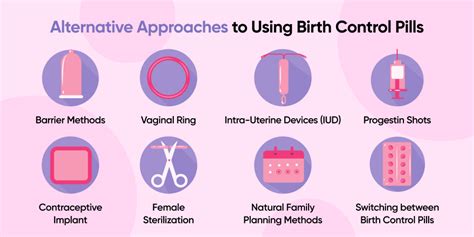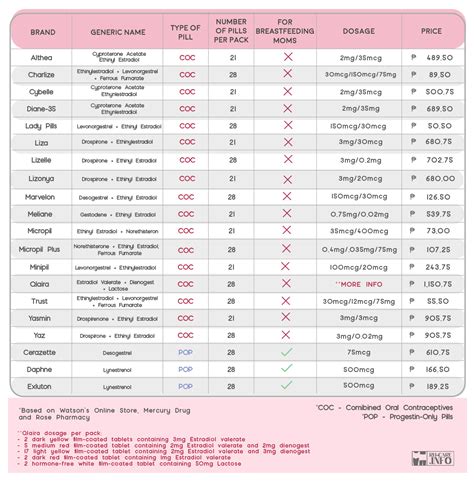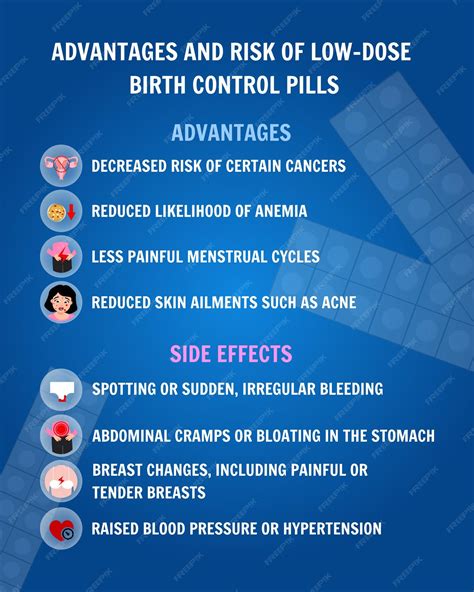Intro
Discover various birth control medication names, including hormonal pills, patches, and injections, to help women manage contraception and reproductive health effectively.
The topic of birth control medication is a highly discussed and important aspect of reproductive health. With numerous options available, it can be overwhelming to navigate the various types of birth control medications. Understanding the different birth control medication names, their mechanisms, and effects on the body is essential for making informed decisions. In this article, we will delve into the world of birth control medications, exploring their benefits, drawbacks, and the various options available.
Birth control medications have revolutionized the way people approach family planning and reproductive health. These medications offer a range of benefits, including the ability to prevent unwanted pregnancies, regulate menstrual cycles, and even treat certain medical conditions such as acne and polycystic ovary syndrome (PCOS). With so many options available, it's crucial to understand the different types of birth control medications, their ingredients, and how they work.
The importance of birth control medications cannot be overstated. Not only do they provide individuals with the freedom to plan their families, but they also offer a range of health benefits. For example, birth control medications can help reduce the risk of certain cancers, such as ovarian and endometrial cancer. They can also alleviate symptoms associated with premenstrual syndrome (PMS) and menstrual cramps. Furthermore, birth control medications can help regulate menstrual cycles, reducing the risk of anemia and other health complications.
Types of Birth Control Medications

There are several types of birth control medications available, each with its unique characteristics and benefits. These include combination pills, progestin-only pills, patches, rings, and injections. Combination pills, which contain both estrogen and progestin, are the most commonly used type of birth control medication. They work by preventing ovulation, thickening cervical mucus, and thinning the uterine lining. Progestin-only pills, on the other hand, contain only progestin and are often recommended for individuals who are sensitive to estrogen.
Combination Pills
Combination pills are the most popular type of birth control medication. They contain a combination of estrogen and progestin, which work together to prevent pregnancy. These pills are available in various formulations, including monophasic, biphasic, and triphasic. Monophasic pills contain the same amount of estrogen and progestin in each pill, while biphasic and triphasic pills contain varying levels of these hormones.Progestin-Only Pills
Progestin-only pills, also known as mini-pills, contain only progestin. They are often recommended for individuals who are sensitive to estrogen or have certain medical conditions, such as high blood pressure or migraines. Progestin-only pills work by thickening cervical mucus and thinning the uterine lining, making it difficult for sperm to fertilize an egg.Birth Control Medication Names

Some common birth control medication names include:
- Yaz
- Yasmin
- Dianette
- Microgynon
- Cilest
- Logynon
- Marvelon
- Mercilon
- Femodene
- Gedarel
These medications are available in various formulations, including pills, patches, and rings. It's essential to consult with a healthcare provider to determine the best birth control medication for your individual needs.
Birth Control Patches
Birth control patches, such as Evra, are a convenient and easy-to-use option. They contain a combination of estrogen and progestin, which are absorbed through the skin. The patch is applied to the skin once a week for three weeks, followed by a patch-free week.Birth Control Rings
Birth control rings, such as NuvaRing, are a flexible and comfortable option. They contain a combination of estrogen and progestin, which are released slowly over a period of three weeks. The ring is inserted into the vagina and left in place for three weeks, followed by a ring-free week.Benefits of Birth Control Medications

The benefits of birth control medications are numerous. They offer a range of advantages, including:
- Effective prevention of pregnancy
- Regulation of menstrual cycles
- Reduction of menstrual cramps and PMS symptoms
- Treatment of acne and other skin conditions
- Reduction of the risk of certain cancers, such as ovarian and endometrial cancer
- Increased freedom and flexibility in family planning
Regulation of Menstrual Cycles
Birth control medications can help regulate menstrual cycles, reducing the risk of irregular periods, heavy bleeding, and anemia. They can also alleviate symptoms associated with PMS, such as mood swings, bloating, and breast tenderness.Reduction of Menstrual Cramps
Birth control medications can help reduce menstrual cramps and other symptoms associated with dysmenorrhea. They work by reducing the production of prostaglandins, which are hormone-like substances that cause the uterine muscles to contract.Drawbacks of Birth Control Medications

While birth control medications offer numerous benefits, they also have some drawbacks. These include:
- Potential side effects, such as nausea, headaches, and breast tenderness
- Increased risk of blood clots and stroke
- Potential impact on libido and sexual function
- Potential interaction with other medications
- Potential effect on fertility after stopping use
Potential Side Effects
Birth control medications can cause a range of side effects, including nausea, headaches, and breast tenderness. These side effects are usually mild and temporary, but in some cases, they can be more severe.Increased Risk of Blood Clots and Stroke
Birth control medications that contain estrogen can increase the risk of blood clots and stroke. This risk is higher in individuals who are over 35 years old, smoke, or have a family history of blood clots or stroke.Choosing the Right Birth Control Medication

Choosing the right birth control medication can be a daunting task, especially with the numerous options available. It's essential to consult with a healthcare provider to determine the best birth control medication for your individual needs. They will consider factors such as your medical history, lifestyle, and personal preferences when recommending a birth control medication.
Consulting with a Healthcare Provider
A healthcare provider can help you navigate the various birth control options and choose the best medication for your needs. They will discuss the benefits and drawbacks of each option, as well as any potential side effects or interactions.Considering Your Medical History
Your medical history is an essential factor to consider when choosing a birth control medication. Certain medical conditions, such as high blood pressure or migraines, may affect your ability to use certain birth control medications.Conclusion and Final Thoughts

In conclusion, birth control medications offer a range of benefits and options for individuals seeking to prevent pregnancy and regulate their menstrual cycles. While they have some drawbacks, the benefits of birth control medications far outweigh the risks. By understanding the different types of birth control medications, their mechanisms, and effects on the body, individuals can make informed decisions about their reproductive health. It's essential to consult with a healthcare provider to determine the best birth control medication for your individual needs.
We invite you to share your thoughts and experiences with birth control medications in the comments section below. Have you used birth control medications in the past? What were your experiences? Do you have any questions or concerns about birth control medications? Share your stories and let's start a conversation.
What are the most common types of birth control medications?
+The most common types of birth control medications are combination pills, progestin-only pills, patches, rings, and injections.
How do birth control medications work?
+Birth control medications work by preventing ovulation, thickening cervical mucus, and thinning the uterine lining, making it difficult for sperm to fertilize an egg.
What are the benefits of birth control medications?
+The benefits of birth control medications include effective prevention of pregnancy, regulation of menstrual cycles, reduction of menstrual cramps and PMS symptoms, and treatment of acne and other skin conditions.
What are the potential side effects of birth control medications?
+The potential side effects of birth control medications include nausea, headaches, breast tenderness, and increased risk of blood clots and stroke.
How do I choose the right birth control medication for my needs?
+To choose the right birth control medication for your needs, consult with a healthcare provider who will consider your medical history, lifestyle, and personal preferences when recommending a birth control medication.
